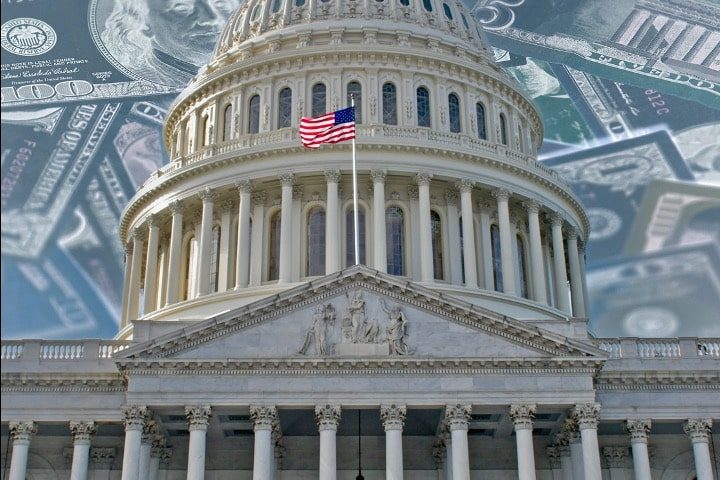
The months-long standoff between Speaker of the House Kevin McCarthy (R-Calif.) and President Joe Biden over raising the federal government’s $31.4 trillion debt ceiling continued after Tuesday’s meeting at the White House to negotiate a deal to avoid default. The meeting was their first since the Republican House passed the “Limit, Save, Grow Act of 2023” (H.R. 2811), which would raise the debt ceiling while cutting spending.
Both Biden and McCarthy held their ground, with the president asking Congress to raise the federal government’s statutory debt limit without conditions, and McCarthy reiterating that the House won’t approve any agreement that doesn’t include spending cuts and limit future government spending.
“I just finished, I thought, a productive meeting with the congressional leadership about the path forward to make sure America does not default … on its debt. We agree to continue our discussions, and we’re going to meet again on Friday,” Biden stated at a White House briefing after the meeting.
He noted in the briefing that “our staffs — we’re going to meet today and daily between now and then [Friday],” adding, “everyone in the meeting understood the risk of default. Our economy would fall into a significant recession. It would devastate retirement accounts, increase borrowing cost…. Americans would lose their jobs … and our international reputation would be damaged in the extreme.”
Knowing that the Treasury estimates the nation will be in default as early as June 1, reporters asked Biden about other options that could be used to avoid default, such as minting a $1 trillion platinum coin or invoking the 14th Amendment.
“I don’t think anybody has studied the minting of the coin issue. But there have been discussions about whether or not the 14th Amendment is — can be invoked. I have been considering the 14th Amendment…. But the problem is it would have to be litigated. And in the meantime, without an extension, it would still end up in the same place,” Biden responded.
McCarthy made it clear that Biden needed to negotiate a deal to avoid default, stating after the White House meeting:
For 97 days, President Biden has played political games and ignored the obvious glaring issue ahead of him. Now, our nation is at the precipice of defaulting for the first time in history. The House passed a plan that would responsibly raise the debt ceiling – meaning Republicans have done our part. The House Republican plan limits government spending, saves taxpayer money, grows the economy, and simply authorizes spending levels that the United States was operating off of five months ago. It’s time for President Biden to come to the negotiating table or risk bumbling into default….
“Is it too much to ask that we spend what we spent just five months ago?”
Senate Minority Leader Mitch McConnell (R-Ky.) also spoke with reporters after the meeting. According to CNN, McConnell stated, “the United States is not going to default. It never has and it never will. However, elections have consequences. We now have a divided government. We didn’t have a divided government last year.”
The risk of default has raised red flags outside of government, as well. According to Reuters, “Wall Street executives who have advised the U.S. Treasury’s debt operations for the past 25 years warned on Tuesday they are ‘deeply concerned’ about the debt limit impasse that has markets worried about a U.S. default on payment obligations.”
The advisors, all current or former chairs or vice chairs of the Treasury Borrowing Advisory Committee (TBAC), sent a letter to Treasury Secretary Janet Yellen on Tuesday, stating:
This current stalemate runs the risk of undermining the foundation of the U.S. Treasury bond market: the full faith and credit of the U.S. government.
A protracted standoff over the debt limit will dramatically increase taxpayer costs and exacerbate market stress. Further, any delay in making an interest or principal payment by Treasury would be an event of seismic proportions, not only for financial markets but also the real economy.
TBAC closed their letter with a recommendation for Congress: ”It is time to introduce an alternative method of enforcing fiscal responsibility, by either requiring the limits to be raised simultaneously with appropriations or by repealing the debt limit altogether.”
Congress and the president need to end the “wash, rinse, and repeat” process of managing the nation’s debt. Americans are tired of being held captive by politicians and their political games. The only true solution is for Congress to cut all unconstitutional spending and for Biden to steer the government back to a fiscally sound position.




